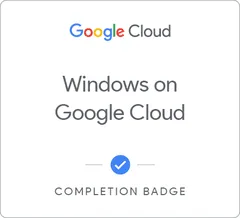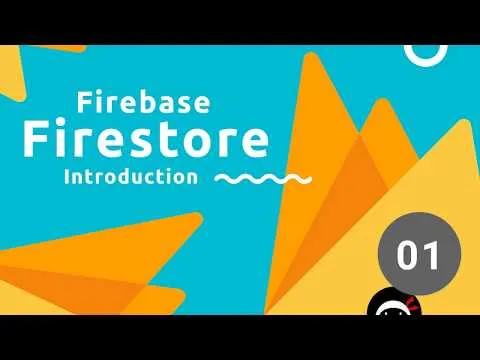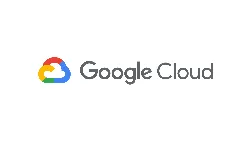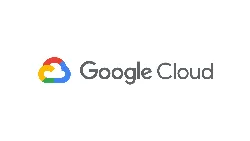
Windows on Google Cloud 
Discover the fundamentals of Windows on Google Cloud ▼
ADVERTISEMENT
Course Feature
![]() Cost:
Cost:
Free
![]() Provider:
Provider:
ThaiMOOC
![]() Certificate:
Certificate:
Free Certification
![]() Language:
Language:
English
![]() Start Date:
Start Date:
On-Demand
Course Overview
❗The content presented here is sourced directly from ThaiMOOC platform. For comprehensive course details, including enrollment information, simply click on the 'Go to class' link on our website.
Updated in [May 19th, 2023]
This course, Windows on Google Cloud, provides an overview of how to run Windows workloads on Google Cloud Platform. Participants will gain hands-on experience with popular Windows services such as Microsoft SQL databases and cloud tools for Powershell. Through a series of lectures and labs, participants will learn how to instantiate these services on Google Cloud Platform frameworks. By the end of the course, participants will have a better understanding of how to use Google Cloud Platform to run Windows workloads.
[Applications]
After completing this course, users can apply their knowledge to running Windows workloads on Google Cloud Platform. They can use the tools and services they have learned to create and manage Windows-based applications and services on Google Cloud Platform. Additionally, users can use the knowledge they have gained to troubleshoot and optimize their Windows workloads on Google Cloud Platform.
[Career Paths]
1. Cloud Engineer: Cloud Engineers are responsible for designing, developing, and managing cloud-based applications and services. They must be knowledgeable in cloud computing technologies, such as Google Cloud Platform, and have experience with scripting languages, such as Powershell. Cloud Engineers must also be able to troubleshoot and optimize cloud-based applications and services. As cloud computing continues to grow in popularity, the demand for Cloud Engineers is expected to increase.
2. Database Administrator: Database Administrators are responsible for managing and maintaining databases. They must be knowledgeable in database technologies, such as Microsoft SQL, and have experience with scripting languages, such as Powershell. Database Administrators must also be able to troubleshoot and optimize databases. As businesses continue to rely on databases for data storage and analysis, the demand for Database Administrators is expected to increase.
3. DevOps Engineer: DevOps Engineers are responsible for automating and streamlining software development processes. They must be knowledgeable in cloud computing technologies, such as Google Cloud Platform, and have experience with scripting languages, such as Powershell. DevOps Engineers must also be able to troubleshoot and optimize software development processes. As businesses continue to rely on automation and streamlining for software development, the demand for DevOps Engineers is expected to increase.
4. Systems Administrator: Systems Administrators are responsible for managing and maintaining computer systems. They must be knowledgeable in computer systems, such as Windows, and have experience with scripting languages, such as Powershell. Systems Administrators must also be able to troubleshoot and optimize computer systems. As businesses continue to rely on computer systems for data storage and analysis, the demand for Systems Administrators is expected to increase.
[Education Paths]
1. Bachelor of Science in Computer Science: This degree program provides students with a comprehensive understanding of computer science fundamentals, including programming, software engineering, and computer architecture. Students will also learn about the latest trends in cloud computing, such as Google Cloud Platform, and how to use it to develop applications.
2. Master of Science in Cloud Computing: This degree program provides students with an in-depth understanding of cloud computing technologies and how to use them to develop applications. Students will learn about the different cloud computing platforms, such as Google Cloud Platform, and how to use them to develop applications. They will also learn about the latest trends in cloud computing, such as machine learning and artificial intelligence.
3. Master of Science in Data Science: This degree program provides students with an in-depth understanding of data science and how to use it to develop applications. Students will learn about the different data science tools, such as Google Cloud Platform, and how to use them to develop applications. They will also learn about the latest trends in data science, such as big data and predictive analytics.
4. Master of Science in Artificial Intelligence: This degree program provides students with an in-depth understanding of artificial intelligence and how to use it to develop applications. Students will learn about the different AI tools, such as Google Cloud Platform, and how to use them to develop applications. They will also learn about the latest trends in AI, such as deep learning and natural language processing.
Course Syllabus
Compute Engine: Qwik Start - Windows
Google Compute Engine lets you create and run virtual machines on Google infrastructure. In this lab you create a Windows Server instance in the Google Compute Engine and access it with RDP. Watch a short preview, Launch a Windows Server Instance, GCP Essentials.Deploy Microsoft SQL Server to Compute Engine
In this lab you will learn how to create a virtual machine with Microsoft SQL Server installed. Youâll also create a Windows user and password and learn how to connect to the Windows Server via remote desktop.Running Windows Containers on Compute Engine
In this lab you will learn how to create a Windows VM for containers on Compute Engine, then create an image with a HelloWorld PowerShell script and run that image as a Windows container.Install and Use Cloud Tools for PowerShell
In this lab you will learn all about Google Cloud Platform Tools for PowerShell. You will practice installation, authentication, working with Compute Engine from PowerShell, as well as how to backup data to Google Cloud Storage from PowerShell.Configuring and Deploying Windows SQL Server on Google Cloud
In this lab you will configure a highly available SQL Server configuration. NOTE: This lab sets up a lab infrastructure when launched, which takes approximately 20 minutes to fully provision and configure.Deploying a Fault-Tolerant Microsoft Active Directory Environment
In this Qwiklab, you set up a redundant pair of Windows Domain Controllers (DC) with AD using a new Virtual Private Cloud (VPC) network and multiple subnets on Google Cloud Platform (GCP).Managed Service for Microsoft Active Directory
Managed Service for Microsoft Active Directory (AD) is a highly available, hardened Google Cloud service running actual Microsoft AD that enables you to manage authentication and authorization for your AD-dependent workloads, automate AD server maintenance and security configuration, and connect your on-premises AD domain to the cloud.Course Provider

Provider ThaiMOOC's Stats at AZClass
Discussion and Reviews
0.0 (Based on 0 reviews)
Explore Similar Online Courses

Firebase Firestore Tutorial

AP Psychology - Course 5: Health and Behavior

Python for Informatics: Exploring Information

Social Network Analysis

Introduction to Systematic Review and Meta-Analysis

The Analytics Edge

DCO042 - Python For Informatics

Causal Diagrams: Draw Your Assumptions Before Your Conclusions

Whole genome sequencing of bacterial genomes - tools and applications

Serverless Data Processing with Dataflow: Develop Pipelines

Serverless Data Processing with Dataflow: Foundations


Start your review of Windows on Google Cloud